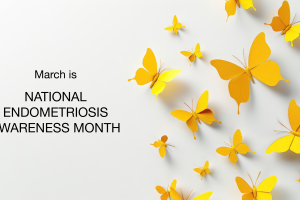
Every January, we observe Cervical Health Awareness Month. This is to remind everyone about the importance of cervical health and to encourage women to take steps to prevent cervical cancer. This helps educate people about cervical cancer, its risks, and why regular screening and vaccination are important.
What is Cervical Cancer?
Cervical cancer happens in the cells of the cervix, which is the lower part of the uterus that connects to the vagina. It is usually caused by the human papillomavirus (HPV), a sexually transmitted infection. While HPV is common and often harmless, some types can lead to cervical cancer. Regular screening and early detection are key to preventing and treating this disease.
Risk Factors for Cervical Cancer
Several things can increase the risk of developing cervical cancer:
- HPV Infection: Long-term infection with high-risk HPV types is the biggest risk factor.
- Smoking: Smoking doubles the risk of cervical cancer.
- Weakened Immune System: Women with weakened immune systems, such as those with HIV, are at higher risk.
- Chlamydia Infection: Past or current infections with chlamydia can increase the risk.
- Long-Term Use of Birth Control Pills: Extended use of birth control pills has been linked to a higher risk of cervical cancer.
- Multiple Full-Term Pregnancies: Women who have had many full-term pregnancies have an increased risk.
Importance of Regular Screening
Regular screening is necessary for early detection and prevention of cervical cancer. The main screening tests are the Pap test (or Pap smear) and the HPV test. These tests can find precancerous changes in the cervix, allowing for early treatment.
- Pap Test: This test collects cells from the cervix to check for irregularities. It is recommended for women starting at age 21 and should be done every three years if results are normal.
- HPV Test: This test detects the presence of high-risk HPV types. It can be done with the Pap test and is recommended for women aged 30 and older every five years if results are normal.
HPV Vaccination
The HPV vaccine is very effective in preventing infection with the high-risk HPV types that cause most cervical cancers. The vaccine is recommended for preteens aged 11 to 12 but can be given as early as age 9 and up to age 45. Vaccination before becoming sexually active is crucial to ensure maximum effectiveness.
Lifestyle Adjustments for Cervical Health
In addition to regular screening and vaccination, certain lifestyle changes can help protect cervical health:
- Quit Smoking: Stopping smoking significantly reduces the risk of cervical cancer.
- Safe Sexual Practices: Using condoms and limiting the number of sexual partners can reduce the risk of HPV infection.
- Healthy Diet: A diet rich in fruits and vegetables can support a healthy immune system and lower the risk of cervical cancer.
- Routine Health Check-ups: Regular visits to a healthcare provider ensure timely screening and early detection of any issues.
Seeking Help and Support
If you have any concerns about cervical health or need more information, consult your healthcare provider. Through regular screening, vaccination, and healthy lifestyle choices, you can reduce the risk of cervical cancer and ensure early detection and treatment.
Want to get a head start on your health? Call MHEDS at 814-453-6229 (Peach Street) or 814-616-7730 (John F. Kennedy Center).
Disclaimer
Our health information does not replace the advice of a doctor. Please be advised that this information is made available to assist the public in learning more about their health. MHEDS’ providers may not see and/or treat all topics found herein.
Sources
- National Cancer Institute. (2021). Cervical Cancer—Patient Version. Retrieved from https://www.cancer.gov/types/cervical
- Centers for Disease Control and Prevention. (2021). HPV and Cancer. Retrieved from https://www.cdc.gov/cancer/hpv/
- American Cancer Society. (2021). Cervical Cancer. Retrieved from https://www.cancer.org/cancer/cervical-cancer.html








